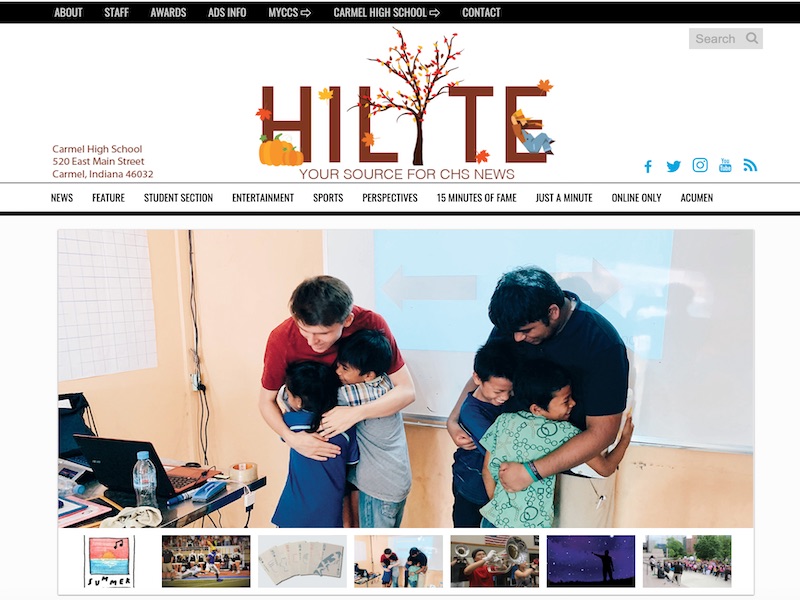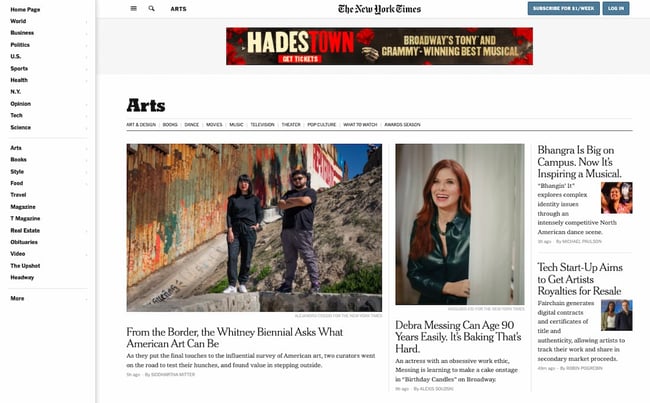The Main Principles Of News Websites
The Main Principles Of News Websites
Blog Article
Some Ideas on News Websites You Should Know
Table of ContentsSome Of News WebsitesNews Websites Fundamentals ExplainedNews Websites Things To Know Before You BuyNews Websites Fundamentals ExplainedGetting My News Websites To Work
It was down in the UK and Brazil but up a few other nations, such as Greece, Bulgaria, and Poland (News Websites). This year, for the very first time, we inquired about the various ways that people stay clear of the information and located that around half of avoiders (53%) were trying to do so in a broad-brush or routine method as an example, by switching off the radio when the news came on, or by scrolling past the news in social media sitesYou said that you attempt to actively avoid news.

I'm possibly picking to find out more light-hearted stories than I used to at the moment. M, 51, UK Switching my back on information is the only method I feel I can cope often. I have to knowingly make the initiative to avert for the sake of my own psychological health.
News Websites Things To Know Before You Buy
Careful evasion of Ukraine information was highest possible in much of the nations closest to the problem, reinforcing searchings for from our added study last year, not long after the battle had begun. Our data may not recommend a lack of rate of interest in Ukraine from neighboring nations but rather a desire to handle time or secure mental health and wellness from the extremely real horrors of battle.
Contrasting Finland with a politically polarised country such as the United States (see following graph) that is much less impacted by the battle, we discover an extremely various pattern of subject evasion. In the USA, we locate that customers are most likely to stay clear of subjects such as national politics and social justice, where disputes over concerns such as sex, sexuality, and race have actually become extremely politicised.
American national politics are pretty hazardous nowadays. I find often that I need to detach from tales that simply make me angry. F, 61, USA For some individuals, bitter and disruptive political debates are a reason to turn off information completely, but for some political upholders, evasion is frequently about blocking out perspectives you don't want to hear.

Get This Report about News Websites
Some are looking to make information much more accessible for hard-to-reach groups, widening the news program, appointing more motivating or positive information, or embracing positive or options journalism that provide people a feeling of hope or personal company. In our study this year, we asked respondents regarding their rate of interest in these various approaches.
This discusses why stories like Ukraine or nationwide politics do well with information regulars yet can at the same time transform less interested users away (News Websites). Discerning avoiders are less interested in all sorts of news than non-avoiders yet in loved one terms they do seem to be more interested in positive or solutions-based news

What Does News Websites Do?
2023). This may hold true in the minute, but over time it appears to be leaving numerous individuals empty and less pleased, which may be threatening our connection with and count on the information. Throughout markets, overall count on news (40%) and count on the sources individuals utilize themselves (46%) are down by an even more 2 percent factors this year.
Undoubtedly, via the rear-view mirror, the COVID-19 trust fund bump is clearly visible in the following graph, though the instructions of traveling later on has been mixed. Sometimes (e.g. Finland), the why not check here trust fund rise has been kept, while in others the upturn looks more like a blip in a tale of continued long-lasting decline.
Some of the greatest reported levels of media criticism are found in countries with highest degrees of mistrust, such as Greece, the Philippines, the United States, France, and the United Kingdom. The most affordable degrees of media criticism frequent those with higher levels of trust, such as Finland, Norway, Denmark, and Japan.
The News Websites Statements
This year we asked respondents about their choices for message, sound and video clip when eating information online. On average, we locate that the majority still choose to read the news (57%), instead than watch (30%) or listen to it (13%), however younger individuals (under-35s) are more have a peek at these guys probable to listen (17%) than older teams.
Behind the standards we locate considerable and unexpected nation distinctions. In markets with a strong analysis practice, such as Finland and the United Kingdom, around 8 in 10 still favor to review online information, yet in India and Thailand, around 4 in ten (40%) state they favor to view information online, and in the Philippines that percentage mores than fifty percent (52%).
Report this page